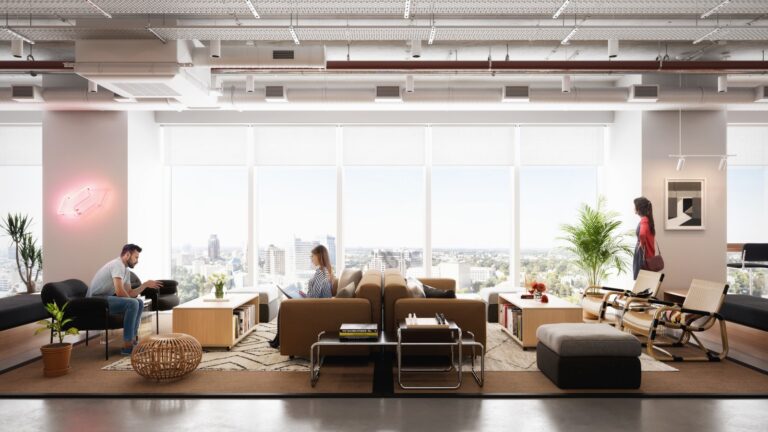After the pandemic made “work from home” (WFH) the leading trend in employment models, what do employees feel the new normal should be?
Tel Aviv-based flexible boutique office space provider Mindspace partnered with OnePoll to survey 1,470 full-time employees between ages 21 and 56 from the UK, US, Germany, Poland, Romania, Netherlands and Israel.
The results suggest that the hybrid model is here to stay — with employee flexibility being the key determinant in employee satisfaction.
Here are the key highlights:
Flexibility first
More than 9 in 10 respondents (92%) consider workplace flexibility important, and more than half ranked the freedom to choose where to work and the autonomy to manage their work hours as “very important.”
In fact, flexibility ranked as the most important work-related perk, ahead of financial bonuses, free food, health benefits and professional development.
Home vs. office
Only a third of respondents still work a full week based in the office, with a fifth only clocking one or two days onsite. Yet 51% said they work more productively in the office than at home, and 69% said that they like going into the office.
In other words, employees want the best of both worlds. While sometimes it’s great to skip the commute and enjoy the comfort of working from home, people also enjoy the energy and productivity that arises from being in the office.
Feeling connected
Most people (85%) said working from home does not impact company culture and they still feel connected to it. However, most workers (60%) do enjoy the social aspects of coming into the office. Over half (51%) like the change of atmosphere that going into the office brings while 47% like having a sense of belonging to a team or company.
Social events at work
A surprising insight to emerge was that 66% of companies are no longer investing in regular in-person events. Only around a third of companies offer work lunches, in-person team bonding sessions or work trips. Slightly more people (23%) are meeting via Zoom for drinks than at actual happy hours (20%).
Engagement
A full 87% said they feel engaged in their job, and 31% feel “very engaged.” Those who didn’t feel engaged cited dissatisfaction with salary, not feeling appreciated, lack of work-life balance and an uninspiring work environment. Office design plays an important role, with natural sunlight, greenery and clean air stated as factors impacting employee wellbeing.
Turnover
There was an even balance between employees planning to remain on the job (49%), and employees seeking a new opportunity. This implies a high level of turnover, with 44% of employees seeking a new role.
“We hope these survey insights will empower companies to rethink their employee experience to attract and retain talent,” said Mindspace CEO and cofounder Dan Zakai. “They clearly indicate the huge shift in how employees value flexibility at work, as well as the important role that coworking has on productivity, employee wellbeing and belonging.”
To download the full survey results, click here.
















